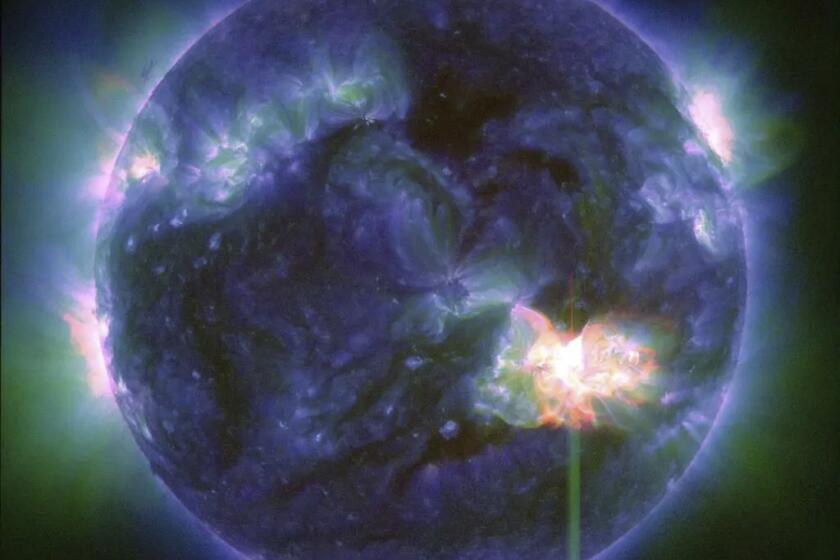Crude behavior
This year’s rapid run-up in crude oil prices might have prompted silly legislation at any time -- but the fact that it has happened in an election year has fostered a sort of wrongheadedness renaissance. Lawmakers from both parties are scrambling to dust off failed strategies from years past and tout them as new and improved ways of halting oil’s meteoric rise. None of them will work, of course, nor are they intended to; they serve only to mislead the public into thinking that Washington is looking out for consumers.
Exhibit A in the case against congressional Democrats as wise stewards of the energy economy is which failed to advance Tuesday after it got too few votes to head off a filibuster. It would have imposed a windfall-profits tax on oil companies and allowed the U.S. attorney general to sue OPEC on antitrust grounds, among other things.
Trying to find an economist who thinks a windfall-profits tax is a good idea is like searching for a climatologist who thinks global warming is caused by trees. Such a tax unfairly targets the oil industry, which is already amply taxed and whose profits aren’t far out of line with other U.S. industries when considered as a percentage of sales. It also would discourage oil companies from investing in new supply, which is precisely what happened when Congress imposed a similar tax in 1980. The result might be even higher oil prices.
That’s nothing compared with the lunacy of taking the Organization of the Petroleum Exporting Countries to court, though. That would invite retaliation by OPEC members, which could seize the assets of U.S. companies doing business overseas. More likely, there would be a subtler response, such as production slowdowns that would cause oil prices to skyrocket.
Republicans are just as short of good ideas. Their big strategy on oil is to open the Arctic National Wildlife Refuge to drilling. A recent report by the Energy Information Administration showed that there is anywhere between 5.7 billion and 16 billion barrels of “recoverable” oil in the refuge. Depending on where the actual number falls in that range, it could eventually reduce the price of oil by between 41 cents and $1.44 a barrel. Given that oil is trading at about $135 a barrel, that’s not much -- and the price reduction wouldn’t occur until around 2026. In fact, it would take at least a decade to extract a drop from the refuge even if drilling were approved tomorrow. The land is more valuable as a pristine home for threatened species.
It won’t be Congress that pops the oil price bubble; conservation, new technologies and market cycles should take care of that. The danger, though, is that lawmakers may make things worse before these forces get a chance to make them better.
More to Read
Start your day right
Sign up for Essential California for news, features and recommendations from the L.A. Times and beyond in your inbox six days a week.
You may occasionally receive promotional content from the Los Angeles Times.






